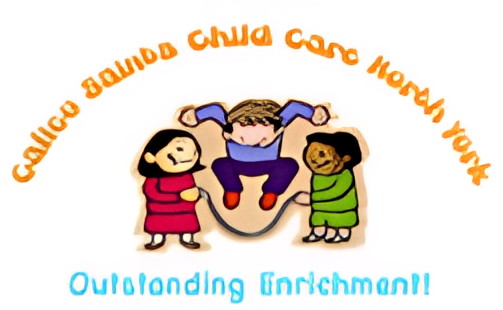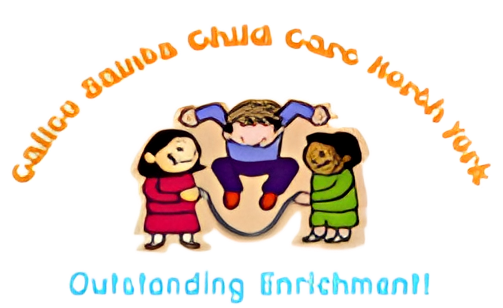Introduction to Early Education Centers: A Foundation for Young Inventors
Early Education Centers aren’t just about ABCs and 123s. They’re the launching pad for the next generation of inventors and thinkers. Imagine a place where curious young minds meet the world of innovation head-on. That’s what these centers offer. From the get-go, kids as young as three or four are not just playing with blocks; they’re laying the foundation for critical thinking and problem-solving skills. It’s like turning a lightbulb on in their heads—one that keeps getting brighter. These centers mix play with learning in a way that feels like pure fun to the kids but is serious business when it comes to development. Interactive activities, teamwork projects, and hands-on problem-solving tasks are all part of the daily routine. The idea is simple: cultivate a love for learning early on, and there’s no limit to what these young inventors can achieve. It’s preparing them not just for school, but for life. This initial step forms a critical bridge from being passive seekers of information to becoming active creators and inventors. And that’s something that can change the world.
The Role of Early Education Centers in Child Development
Early education centers play a crucial role in child development. They provide a safe space where kids can explore, learn, and grow. At these centers, children learn the basics like numbers, letters, and shapes. But it’s not all about academics. Kids also learn critical social skills. They learn to share, work in teams, and communicate effectively. This early start sets the foundation for their future learning and success. Plus, these centers help children discover their interests. They offer programs in arts, science, and sports, letting kids try new things and maybe find a passion. It’s where little seekers can start their journey to become inventors, thinkers, and leaders.
Programs Offered by Early Education Centers: An Overview
Early education centers offer a wide variety of programs targeted at young learners, aiming to spark their curiosity and set a solid foundation for lifelong learning. From toddlers to preschoolers, these centers cater to different age groups through carefully structured classes. Play-based learning sits at the heart of these programs, ensuring kids learn through activities they naturally love. Programs often include literacy and numeracy to build essential academic skills, arts and crafts to foster creativity, and science and discovery modules to satisfy their inquisitive minds. Beyond academics, social skills are a major focus. Kids learn to share, communicate, and work as part of a team. For parents, this means not just an academic head start but a well-rounded child who is curious, confident, and ready to step into a bigger world. No need to get tangled in jargon, it’s about giving your kid a fun, engaging, and enriching start.
From Play to Innovation: How Programs at Early Education Centers Inspire Creativity
Early education centers are not just about playtime. They’re the starting blocks where kids turn curiosity into creativity. Here’s how it happens. Kids dive into activities that look like all fun and games, but there’s a method to the madness. Through playing, they learn problem-solving and teamwork. They get messy with paints and building blocks. This mess? It’s the first draft of innovation. Educators guide them, but it’s the kids who call the shots on their projects. This freedom boosts their confidence to try, fail, and try again. Programs are designed to make them think, “What if?” and “Let’s try!” instead of “I can’t.” From music to science experiments, each activity is a puzzle piece to creativity. These centers are where kids learn that making mistakes is a part of learning, sparking a fearless spirit of invention. It’s not just play; it’s the preparation for a world that’s waiting for their ideas.
The Importance of STEM Programs in Early Childhood Education
Kids are like sponges, soaking up everything around them. That’s why introducing them to STEM – Science, Technology, Engineering, and Mathematics, at an early age is crucial. These programs can ignite a love for discovery and innovation in young minds. Early exposure to STEM encourages curiosity, critical thinking, and problem-solving skills. It’s not just about equations and experiments; it’s about helping kids understand the world around them. They learn to ask questions, experiment, fail, and try again. STEM programs in early education lay a foundation for lifelong learning and adaptability in a fast-changing world. Plus, these skills are in high demand in the workforce, preparing kids for the jobs of the future. In short, early STEM education is a key stepping stone in transforming young learners into the inventors and problem-solvers of tomorrow.
Language and Literacy: Building Blocks of Early Learning
Early education centers play a big role in shaping how kids tackle language and literacy, making these skills super important. Think of language and literacy as the foundation of a house. Without a strong base, everything else might wobble. These centers start with the basics, like helping kids understand and use words, and then move on to reading and writing. It’s not just about learning the alphabet. It’s about encouraging kids to express themselves, ask questions, and dive into books with excitement. The goal? To make sure every child loves reading and feels confident in how they communicate. By turning reading into a fun part of the day, these programs lay down the groundwork so kids can tackle any subject in school with ease. Teachers use stories, songs, and games to make learning engaging. This way, kids start to see language and literacy not as chores, but as adventures.
Nurturing Emotional and Social Intelligence Through Early Education Programs
Early education isn’t just about letters and numbers. It’s about helping kids understand their feelings and get along with others. Programs in Early education centers are designed to make this happen. They teach kids how to recognize and express their emotions in a healthy way. This is crucial for building strong friendships and working well in teams later in life. Through games and activities, children learn about empathy. That means they start to get how others feel and why it matters. Teachers play a huge role here, guiding them gently through their emotional ups and downs. This early start in understanding feelings and working with others sets a solid foundation for kids. It’s not just about being smart; it’s about being emotionally and socially savvy too.
Physical Development and Health: Active Learning Programs
Early education centers focus on more than just reading and math. They understand kids need to move and be healthy. That’s why many have programs for physical development and health, making sure kids stay active and learn about taking care of their bodies. These programs often include fun activities like running, jumping, and even yoga for little ones. They teach kids the joy of moving and the importance of exercise, not in a boring way but through games and challenges that make them want to participate. Health education is also a big part of these programs. Kids learn about healthy eating, the importance of hydration, and why a good night’s sleep is crucial. They’re taught in simple, easy-to-understand terms. Imagine a teacher explaining why carrots are better than candy, or how water helps keep our bodies running smoothly. It’s about laying the foundation for healthy habits that last a lifetime. These programs aren’t just good for the body; they also help with social skills, as kids work together in teams or share equipment. They learn about teamwork, respect, and taking turns. So, in essence, these active learning programs are shaping well-rounded, healthy, and socially savvy individuals right from the start.
Parental Involvement: Enhancing the Learning Experience at Early Education Centers
Kids do better when their parents are involved. It’s that simple. Being part of your child’s education journey at an Early education centers isn’t just beneficial; it’s essential. Think of it as the secret sauce to boosting their learning potential. Here’s why: When you regularly engage with the center and your child’s activities, you help them feel supported and understood. This boosts their confidence and eagerness to learn. Plus, you’re not just a spectator; you become a key player in their educational adventure.
Start by attending events and meetings at the center whenever you can. These are golden opportunities to see what your child is learning and to meet the people teaching them. Also, take the time to read with your child at home, discuss what they learned each day, and play educational games that reinforce their lessons. Your involvement sends a clear signal that education matters and learning doesn’t stop at the classroom door.
Remember, your role isn’t to be the teacher but to be the cheerleader, guide, and sometimes even a student yourself. Working hand in hand with Early education centers sets a strong foundation for your child’s academic future. So, dive in, get involved, and watch your little learner thrive.
Conclusion: Shaping the Future from Seekers to Inventors
In wrapping this up, Early education centers aren’t just about playtime or nap schedules. They are essential grounds for morphing young minds from seekers to inventors. At their core, these programs feed curiosity, build resilience, and teach problem-solving—skills paramount in any inventor’s toolkit. From hands-on science experiments to interactive math games, children are not just learning; they’re engaging with the world in ways that lay down the foundation for future innovations. Remember, every great inventor once started as a curious seeker. By choosing the right program, you’re not just filling your child’s day with activities; you’re setting them on a path to possibly change the world.





